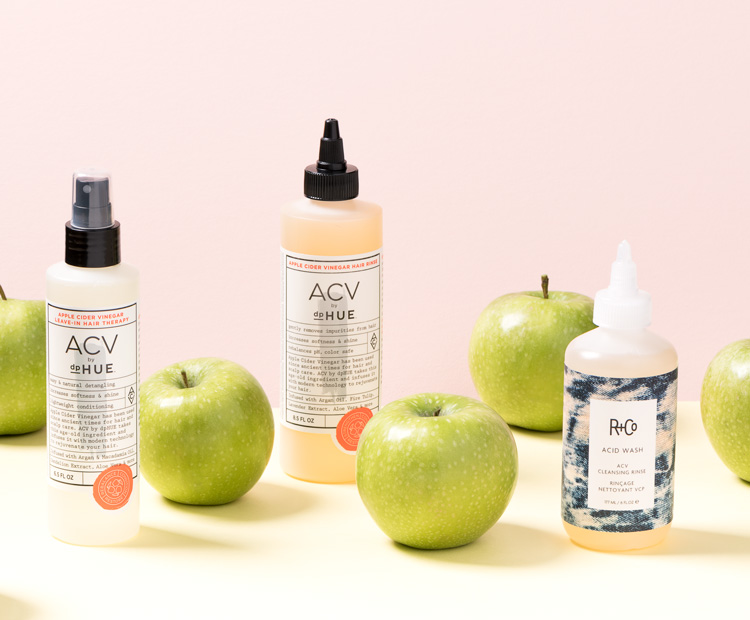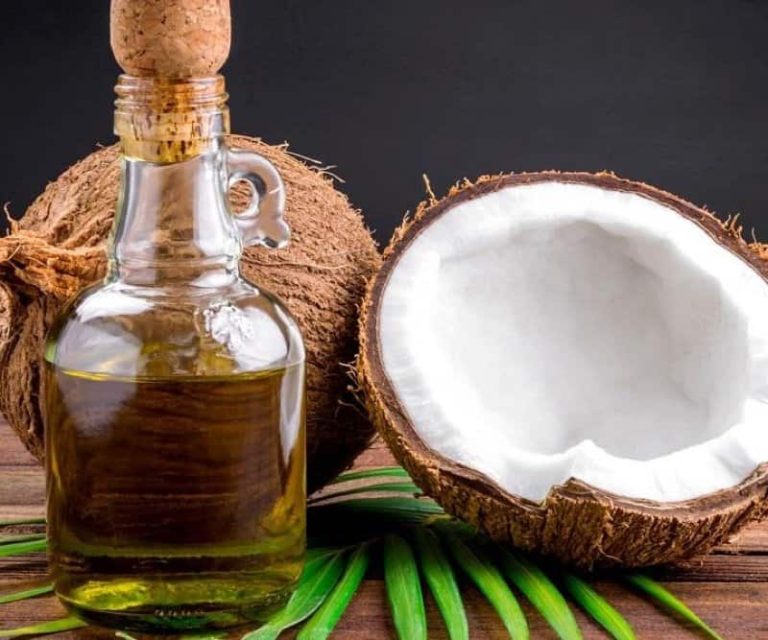The Surprising Benefits of Apple Cider Vinegar for Skin
Apple cider vinegar is a powerful, all-natural remedy that has many benefits for the skin. It has been used for centuries and continues to be an effective skin treatment today.
In this blog post, I have discussed what apple cider vinegar is, its various sources and forms, the many ways it can improve skin health, how to use it on your face, products that contain it, and potential side effects to be aware of. Read on to learn how apple cider vinegar can transform your skincare routine.
What Is Apple Cider Vinegar?
Contents
- What Is Apple Cider Vinegar?
- Sources and Forms of Apple Cider Vinegar
- Benefits Of Apple Cider Vinegar For The Skin
- How to Use Apple Cider Vinegar on Your Face
- Skincare Products With Apple Cider Vinegar
- Drinking Apple Cider Vinegar for Glowing Skin
- Getting the Most Out of Apple Cider Vinegar for Skin
- Potential Side Effects of Apple Cider Vinegar
- Alternatives to Apple Cider Vinegar for Skin
- Conclusion
Apple cider vinegar is made by fermenting apple juice. The fermentation process gives the vinegar its signature deep brown color and sour taste. Besides being used as a condiment in dressings and sauces, apple cider vinegar is also taken as a health supplement.
Research shows apple cider vinegar has potential benefits for weight loss, cholesterol levels, and reducing inflammation. But what makes it so great for your skin? Let’s take a closer look at this multi-tasking ingredient.
Sources and Forms of Apple Cider Vinegar
Apple cider vinegar can be made from apples as well as other fruits like grapes, peaches, and apricots. To make it, the fruits are first crushed and the juice is extracted. The juice then undergoes fermentation with yeast, which converts the natural sugars into alcohol.
In the second stage of fermentation, bacteria are added which further ferment the alcohol into acetic acid. This is the key active compound that gives vinegar its sour taste and medicinal qualities.
For skincare purposes, raw, unfiltered, organic apple cider vinegar is preferred. This type retains a cobweb-like substance called “the mother” that forms naturally during the fermentation process. The “mother” contains enzymes, proteins, and probiotics that provide additional health benefits.
On the other hand, filtered apple cider vinegar has a clear, amber look and does not contain the “mother”. Filtered varieties are usually pasteurized to kill off any bacteria. This destroys potentially beneficial enzymes and nutrients.
Apple cider vinegar is also available in tablet or capsule form as a supplement. However, the topical application provides more direct benefits for the skin.
Benefits Of Apple Cider Vinegar For The Skin

Apple cider vinegar has many scientifically-backed benefits for the skin. Here are some of the ways ACV can improve your complexion:
1. Reduces acne
The acetic acid in ACV has antibacterial effects that can kill acne-causing bacteria like P. acnes. ACV is also anti-inflammatory, so it helps calm the redness and swelling of pimples.
2. Evens out skin tone
Gentle exfoliation from alpha-hydroxy acids removes dead skin cells and reveals brighter, more even-toned skin.
3. Fights signs of aging
Antioxidants in apple cider vinegar neutralize free radicals that cause wrinkles, age spots, and other signs of aging. It also contains important minerals that keep the skin hydrated and supple.
4. Balances pH levels
Apple cider vinegar is acidic, with a pH between 2-3. This helps restore the skin’s protective acid mantle. Pathogens have a harder time surviving in an acidic environment.
5. Removes excess oil
The acetic acid dissolves dirt and debris buildup that clogs pores. This helps control sebum production.
How to Use Apple Cider Vinegar on Your Face

There are a few techniques for harnessing the benefits of ACV:
As a toner: Mix equal parts ACV and water in a spray bottle. Mist over a cleansed face morning and night. This helps restore pH, fight acne, and control oil production.
Facial soak: Add 2 tablespoons ACV to a bowl of warm water. Apply a towel soaked in the mixture over your face for 5-10 minutes to deep cleanse pores.
Spot treatment: Dip a cotton swab in undiluted ACV and dab directly onto pimples to reduce swelling and kill bacteria.
Mask ingredient: Add 1 teaspoon ACV to DIY face mask recipes for added antibacterial and exfoliating effects.
Astringent: Wipe skin with undiluted ACV using a cotton pad to instantly cleanse, tighten pores, and control oiliness.
The key is to always dilute ACV before applying it directly to your face. Start with a 1:1 ratio of vinegar to water and adjust as needed based on your skin’s sensitivity.
Skincare Products With Apple Cider Vinegar
Many skincare brands now formulate products containing ACV to harness its multifaceted benefits:
1. The Inkey List Apple Cider Vinegar Acid Peel
This peel contains alpha-hydroxy acids (10% AHAs and BHAs) derived from apples, sugar cane, and willow bark to gently exfoliate and brighten the complexion.
2. Farmacy Deep Sweep 2% BHA Pore Cleaning Toner
This clarifying toner contains 2% salicylic acid plus apple cider vinegar to dissolve oil and debris, sweep away dead skin cells, and visibly reduce enlarged pores.
3. Peter Thomas Roth Acne Clearing Wash
This daily facial cleanser combines 2% salicylic acid, apple cider vinegar, and allantoin to effectively unclog pores, remove excess oil, and soothe irritated skin prone to breakouts.
4. Biossance 100% Squalane Oil
This lightweight moisturizer blends apple cider vinegar with tea tree oil to target acne and redness while balancing oil production. The formula hydrates without clogging pores.
5. Herbivore Botanicals Blue Tansy Resurfacing Clarity Mask</strong
White willow bark, fruit enzymes, blue tansy essential oil, and apple cider vinegar work together in this mask to gently exfoliate, soothe irritation, and balance the complexion. Skin looks clearer and more radiant after one use.
Drinking Apple Cider Vinegar for Glowing Skin
Ingesting diluted apple cider vinegar can also benefit the skin by:
- Balancing the body’s pH levels to create a healthier environment where good bacteria can thrive.
- Reducing inflammation that manifests as acne, rashes, or premature aging.
- Providing vitamins, minerals, and antioxidants that nourish the skin from within.
However, apple cider vinegar is not a cure-all. While promising, research on the internal effects of ACV is limited. It’s important not to view ACV as a magic solution to all your skin woes.
I recommend consulting your healthcare provider before starting any new dietary supplement, especially if you take medications or have a chronic health condition. Work with your doctor to determine safe dosages and assess your individual nutrient needs.
Getting the Most Out of Apple Cider Vinegar for Skin
To reap the maximum skincare benefits of ACV:
- Use raw, unfiltered apple cider vinegar containing the “mother”
- Always dilute ACV before applying it directly on the skin
- Customize masks and toners by adding ingredients like antioxidants, clays, aloe vera, honey, and essential oils
- Use ACV as part of a regular skincare regimen for best results over time
- Pay attention to how your skin reacts and reduce ACV concentration or frequency of use if any irritation occurs
Potential Side Effects of Apple Cider Vinegar
Despite its many benefits, ACV does come with some cautions:
- Undiluted vinegar has a high acidity that can damage the skin barrier over time leading to dryness, flaking, stinging, and increased sun sensitivity.
- Apple cider vinegar should not be applied to open wounds or broken skin as it will result in a painful burning sensation.
- Drinking apple cider vinegar can damage tooth enamel due to acidity. Always dilute ACV thoroughly and use a straw to minimize contact with teeth.
To avoid side effects, do a patch test before using ACV topically for the first time. And closely monitor your skin’s reaction when trying new application methods or increasing concentration.
Alternatives to Apple Cider Vinegar for Skin
If you find apple cider vinegar too irritating or drying for your skin type, some gentler alternatives to try are:
- Honey – Soothes and hydrates sensitive skin prone to redness or dry patches.
- Aloe vera – Calms inflammation and heals damaged skin by boosting new cell turnover.
- Chamomile tea – Anti-inflammatory. Place cooled tea bags over closed eyes to reduce puffiness.
- Cucumber juice – Astringent effect tightens pores and provides hydration without oiliness.
- Yogurt – Natural source of lactic acid to gently exfoliate and nourish.
- Green tea – Polyphenols reduce UV damage and soothe irritation.
- Witch hazel – Helps stop itching and swelling. Acts as a natural astringent.
Conclusion
Thanks to its powerful antibacterial, antifungal, and antioxidant properties, apple cider vinegar can be a game-changer for your skincare regimen. It tackles acne, evens skin texture, fades dark spots, and balances pH levels.
Use raw, unfiltered ACV containing “the mother” and always dilute before applying. Be aware that direct acid contact can potentially irritate sensitive skin. Reduce concentrations or frequency of use if any discomfort occurs.
You can incorporate ACV into DIY masks, spot treatments, toners, and cleansers. It’s also an ingredient in many ready-made commercial products designed to cleanse, exfoliate, and clarify the complexion.
While promising, research on apple cider vinegar’s effects on skin and health are still emerging. Consult your dermatologist or doctor to see if adding ACV to your skincare or diet is suitable for your individual needs.

Founded by Sophia Rodriguez, IGXO Cosmetics is a PETA-certified, cruelty-free, and vegan makeup brand.





